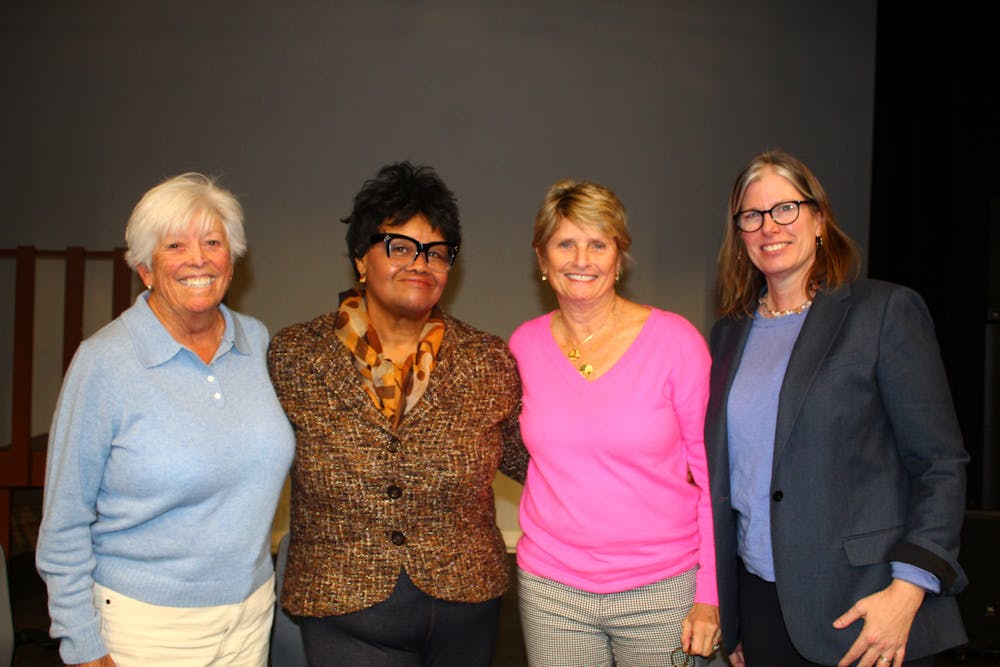The Seton Hall Center for Sports Media hosted two members of the first women’s basketball team, along with the first female coach, to celebrate 50 years of Title IX on Dec. 1. This event took place a day before the 50 Years of Women’s Sports celebration.
Pamela “Pam” Cerruti and Robin Crudup, both on Seton Hall’s first women’s basketball team, spoke about their experiences as student athletes during the 1970s. Sue Dilley Regan, an athletic administrator when Title IX passed, also discussed her experience coaching the first women’s team.
Title IX of the Education Amendments passed in 1972, which prohibited sex-based discrimination for educational programs and activities. As a result, women’s sports across colleges and universities in the U.S. became implemented within the athletic departments.
Crudup was on the first women’s basketball team in 1973-1974 and said that the team “did pretty good” even though they were part of the new program. “We were like sisters,” Crudup said about the team’s chemistry.
Cerruti, one of the first scholarship recipients in 1974, agreed and said being part of the team was a fun experience. “We were all buddies,” she said. “We all really loved each other, it was a real unit of fun.”
As the coach, Regan said there was a lot of “trial and error” with the first women’s team. “The athletic department did as much as they could with the resources they had,” she said.
When the team had away games, Regan mentioned that the team didn’t have access to a bus or other forms of transportation. Instead, Regan drove a van that fit the players and took them to the games herself.
However, Regan said there were more positive than negative experiences during the 1970s. The main issue was the facilities, such as not having a dedicated practice location.
Crudup mentioned during the first year, the women’s team had to wait for the men’s team to finish practicing. “We would practice at 10 p.m. or 11 p.m. at night,” she said. Female student athletes were also not allowed to do any weight-training because people “didn’t think women should be lifting weights back then.”
Jane McManus, the director of the Center for Sports Media, explained that there were restrictions on certain types of training for women to protect them. The belief back then was that women would harm their reproductive organs, McManus said.
In terms of the evolution of women’s sports, all three panelists mentioned that there has been great progress. Cerruti said that watching the programs grow has been “amazing.”
“Women’s games are on TV,” she said, which has shown the “growth of women’s sports nationally.”
Crudup said that the terminology has changed over time. “Today we’re called athletes,” she said. “When I was coming up, I was called a tomboy. It’s a big evolution, we can do everything the men can do.”
While the advancements were great then in the 1970s, according to Regan, “there are a lot more benefits now, but more pressure.”
“There are expectations and demands, but you have more support now,” Regan said.
Crudup mentioned that sex-based discrimination hasn’t completely disappeared, especially when one graduates from being a student athlete. “Stand tall, speak your mind,” she said to current female students. “You’ll have to be the one to make the difference.”
Regan’s advice to current students regarding inclusivity came from a quote from Shirley Chisholm, first black woman elected to U.S. Congress. “’If they don't give you a seat at the table, bring a folding chair,’ that’s exactly what you have to do.”
Dareen Abukwaik can be reached at dareen.abukwaik@student.shu.edu





